 W
WPer Brinch Hansen was a Danish-American computer scientist known for his work in operating systems, concurrent programming and parallel and distributed computing.
 W
WStephen D. Crocker is the inventor of the Request for Comments series, authoring the first RFC and many more. He attended Van Nuys High School, as did Vint Cerf and Jon Postel. Crocker received his bachelor's degree (1968) and PhD (1977) from the University of California, Los Angeles. Crocker was appointed as chair of the board of the Internet Corporation for Assigned Names and Numbers, ICANN in 2011.
 W
WDorothy Elizabeth Denning, born August 12, 1945, is a US-American information security researcher known for lattice-based access control (LBAC), intrusion detection systems (IDS), and other cyber security innovations. She published four books and over 200 articles. Inducted into the National Cyber Security Hall of Fame in 2012, she is now Emeritus Distinguished Professor of Defense Analysis, Naval Postgraduate School.
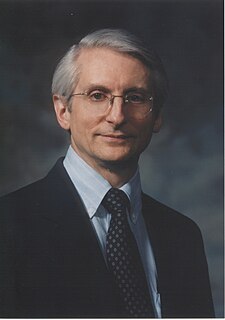 W
WPeter James Denning is an American computer scientist and writer. He is best known for pioneering work in virtual memory, especially for inventing the working-set model for program behavior, which addressed thrashing in operating systems and became the reference standard for all memory management policies. He is also known for his works on principles of operating systems, operational analysis of queueing network systems, design and implementation of CSNET, the ACM digital library, codifying the great principles of computing, and most recently for the book The Innovator's Way, on innovation as a set of learnable practices.
 W
WJohn J. Donovan is a former management professor at MIT, and the current president and chief executive of the Cambridge Technology Group, an executive training company.
 W
WLuis Roberto Furlán Collver is a Guatemalan electrical engineer.
 W
WJohn Burdette Gage was the 21st employee of Sun Microsystems, where he is credited with creating the phrase: "The network is the computer." He served as vice president and chief researcher and director of the Science Office for Sun Microsystems, until leaving on June 9, 2008, to join Kleiner Perkins Caufield & Byers as a partner to work on green technologies for global warming; he departed KPCB in 2010 to apply what he had learned "to broader issues in other parts of the world".
 W
WDr. Ricardo Adolfo Galli Granada, also known as gallir, is a doctor of computer science at the University of the Balearic Islands, where he teaches operating system design. He is a speaker for the Free Software Foundation and a free software activist.
 W
WSami Erol Gelenbe is a Turkish born French computer scientist, electronic engineer and applied mathematician who is Professor in the Institute of Theoretical and Applied Informatics of the Polish Academy of Sciences (2017-), Honorary Professor University of Electronic Science and Technology of China, Consultant to Huawei's Ireland Research Centre and affiliated with the I3S CNRS Laboratory of the University of Cote d'Azur (Nice). Previously he was a Chaired professor at University of Liege (1974-1979), University Paris-Sud (1979-1986), University Paris Descartes (1986-2005), Duke University (1993-1998), the University of Central Florida (1998-2003) and Dennis Gabor Professor at Imperial College (2003-2019). Known for pioneering the field of modelling and performance evaluation of computer systems and networks throughout Europe, he invented the random neural network and the eponymous G-networks. His awards include the Grand Prix France Telecom (1996) of the French Aademy of Sciences, ACM SIGMETRICS Life-Time Achievement Award, the Oliver Lodge Medal of the UK's Institution of Engineering and Technology (2010), and the "In Memoriam Dennis Gabor Award" (2013) of the Hungarian Academy of Sciences.
 W
WGarth Alan Gibson is a computer scientist from Carnegie Mellon University. Gibson's principal contribution to computing was developing the RAID taxonomy of redundant data storage systems, along with David A. Patterson and Randy Katz.
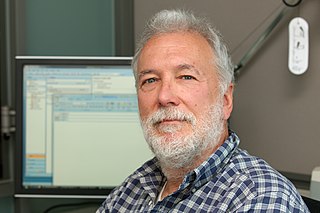 W
WJames Richard "Jim" Goodman is a professor of computer science at the University of Auckland in Auckland, New Zealand, and emeritus professor at the University of Wisconsin–Madison.
 W
WAmar Gupta is a computer scientist, originally from Gujarat, India and now based in the United States. Gupta has worked in academics, private companies, and international organizations in positions that involved analysis and leveraging of opportunities at the intersection of technology and business, as well as the design, development, and implementation of prototype systems that led to widespread adoption of new techniques and technologies. He has surmounted several strategic, business, technical, economic, legal, and public policy barriers related to several innovative products and services.
 W
WGernot Heiser is a Scientia Professor and the John Lions Chair for operating systems at the University of New South Wales (UNSW). He is also leader of the Software Systems Research Group (SSRG) at NICTA. In 2006 he co-founded Open Kernel Labs to commercialise his L4 microkernel technology.
 W
WVan Jacobson is an American computer scientist, renowned for his work on TCP/IP network performance and scaling. He is one of the primary contributors to the TCP/IP protocol stack—the technological foundation of today’s Internet. Since 2013, Jacobson is an adjunct professor at the University of California, Los Angeles (UCLA) working on Named Data Networking.
 W
WWilliam Nelson Joy is an American computer engineer and venture capitalist. He co-founded Sun Microsystems in 1982 along with Scott McNealy, Vinod Khosla, and Andy Bechtolsheim, and served as Chief Scientist and CTO at the company until 2003. He played an integral role in the early development of BSD UNIX while being a graduate student at Berkeley, and he is the original author of the vi text editor. He also wrote the 2000 essay "Why The Future Doesn't Need Us", in which he expressed deep concerns over the development of modern technologies.
 W
WSamy Kamkar is an American privacy and security researcher, computer hacker, whistleblower and entrepreneur. At the age of 16, he dropped out of high school and one year later, co-founded Fonality, a unified communications company based on open source software, which raised over $46 million in private funding. In 2005, he created and released the fastest spreading virus of all time, the MySpace worm Samy, and was subsequently raided for it by the United States Secret Service, under the Patriot Act. He also created SkyJack, a custom drone which hacks into any nearby Parrot drones allowing them to be controlled by its operator and created the Evercookie, which appeared in a top-secret NSA document revealed by Edward Snowden and on the front page of The New York Times. He has also worked with The Wall Street Journal, and discovered the illicit mobile phone tracking where the Apple iPhone, Google Android and Microsoft Windows Phone mobile devices transmit GPS and Wi-Fi information to their parent companies. His mobile research led to a series of class-action lawsuits against the companies and a privacy hearing on Capitol Hill.
 W
WSrinivasan Keshav is the Robert Sansom Professor of Computer Science at the University of Cambridge, with effect from 1 October 2019.
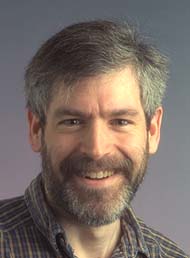 W
WDon Libes is a computer scientist at NIST performing computer science research on interoperability. He works in the Manufacturing Systems Integration Division, which performs research on software integration methods, creating custom software that implements draft standards and serves as an interface to other components provided by separate vendors.
 W
WJochen Liedtke was a German computer scientist, noted for his work on microkernels, especially the creation of the L4 microkernel family.
 W
WKathryn S. McKinley is an American computer scientist noted for her research on compilers, runtime systems, and computer architecture. She is also known for her leadership in broadening participation in computing. McKinley was co-chair of CRA-W from 2011 to 2014.
 W
WRoger D. Moore was the 1973 recipient of the Grace Murray Hopper Award from the Association for Computing Machinery (ACM). It was given: "For their work in the design and implementation of APL\360, setting new standards in simplicity, efficiency, reliability and response time for interactive systems."
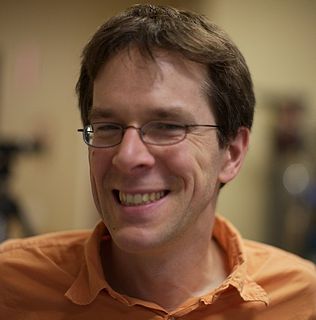 W
WRobert Tappan Morris is an American computer scientist and entrepreneur. He is best known for creating the Morris worm in 1988, considered the first computer worm on the Internet.
 W
WRadia Joy Perlman is an American computer programmer and network engineer. She is most famous for her invention of the spanning-tree protocol (STP), which is fundamental to the operation of network bridges, while working for Digital Equipment Corporation. She also made large contributions to many other areas of network design and standardization, such as link-state routing protocols.
 W
WPablo Rodriguez is a Spanish computer scientist and researcher, who is best known for his research in the mid-2000s on peer-to-peer file sharing and user-generated content. After working for technology and communications companies AT&T and Microsoft Research, Rodriguez returned to Spain in 2006 to become the research director for telecommunications provider Telefónica. In 2010 took a position as an adjunct professor at Columbia University in New York.
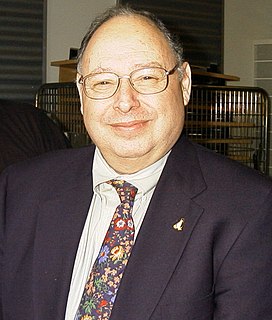 W
WPeter Henry Salus is a linguist, computer scientist, historian of technology, author in many fields, and an editor of books and journals. He has conducted research in germanistics, language acquisition, and computer languages.
 W
WCarlo Heinrich Séquin is a professor of Computer Science at the University of California, Berkeley in the United States.
 W
WAndrew Stuart Tanenbaum, sometimes referred to by the handle ast, is an American-Dutch computer scientist and professor emeritus of computer science at the Vrije Universiteit Amsterdam in the Netherlands.
 W
WAlexander L. Wolf is a Computer Scientist known for his research in software engineering, distributed systems, and computer networking. He is credited, along with his many collaborators, with introducing the modern study of software architecture, content-based publish/subscribe messaging, content-based networking, automated process discovery, and the software deployment lifecycle. Wolf's 1985 Ph.D. dissertation developed language features for expressing a module's import/export specifications and the notion of multiple interfaces for a type, both of which are now common in modern computer programming languages.
 W
WWong Meng Weng (黃銘榮) is a Singaporean computer entrepreneur notable for proposing a historicist explanation for the relative tendency of individuals in different generations after immigration to become entrepreneurs. In 1994 he founded pobox.com, an email services company. In 2003 he led the group that designed the Sender Policy Framework standard (RFC4408) which was later embraced and extended by Microsoft. In 2005 he co-founded Karmasphere, a reputation services venture. In 2010 he co-founded the Joyful Frog Digital Incubator, an early-stage digital innovation company. In 2018, he co-founded Legalese, a firm seeking to develop standards and tools to automate legal filings.